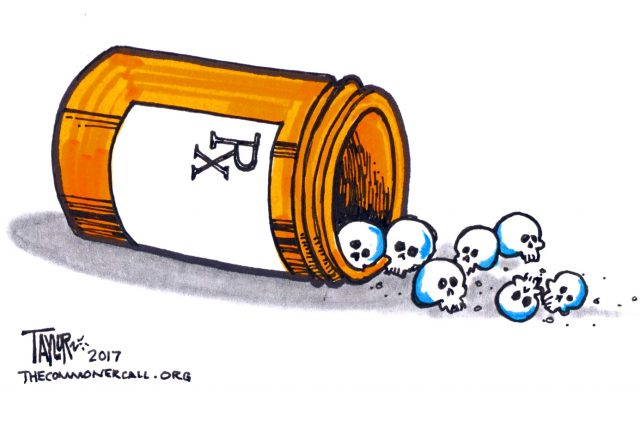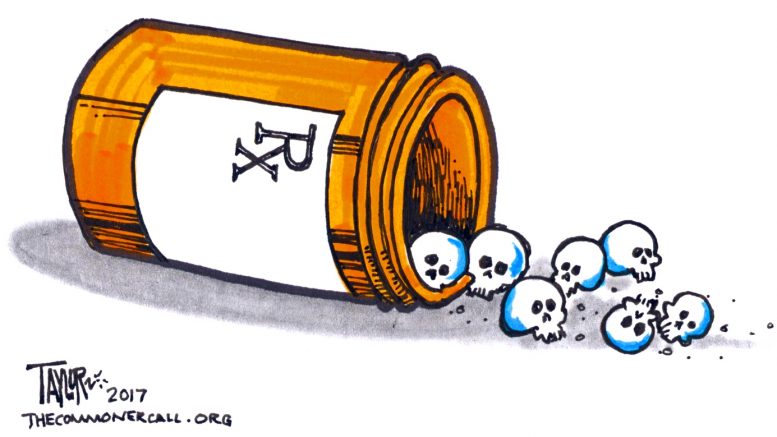
By Jon Collins
Minnesota Public Radio (3/30/18)
When supporters rolled out what they called “penny-a-pill” legislation last month, they described it as a bipartisan effort to raise needed money to combat the opioid overdose epidemic that claimed hundreds of lives in Minnesota last year. But the legislation faces an uncertain future after strong opposition from pharmaceutical companies and some business interests.
The legislation, as originally proposed, would charge pharmaceutical companies a fee for every opioid painkiller they sell. That would raise an estimated $20 million in continued funding for abuse prevention efforts, wider access to the overdose medication naloxone and more resources for treatment.
But the House version of the bill no longer includes the fee on manufacturers. Instead, money for the programs would come out of the state general fund, which would be one-time funding. And just this week, the Senate version was tabled by the bill’s author in the committee she chairs.
Supporters of the bill, including many who’ve lost loved ones to overdose, are alarmed.
“We’ve already spent enough taxpayer dollars on this opioid crisis. It’s time for the pharmaceutical companies to pony up.”
Sen. Chris Eaton, DFL-Brooklyn Center, lost her daughter Ariel Eaton-Willson to a heroin overdose in 2007. She helped conceive the bill, but said she won’t support it if it relies on general fund money instead of a fee on opioids.
“That money will be taken from schools and health care and so on, and that’s not OK,” Eaton said. “We’ve already spent enough taxpayer dollars on this opioid crisis. It’s time for the pharmaceutical companies to pony up.”
The industry group Pharmaceutical Research and Manufacturers of America (PhRMA) employs five lobbyists at the Capitol, according to state records. Director of Public Affairs Nick McGee said his group has supported proposals that prevent overprescribing, educate and expand access to treatment.
“We’re engaged with lawmakers,” McGee said. “We’re engaged with the process to bring together a solution and we’re going to continue to be.”
McGee said the state should not implement a fee on manufacturers.
“Taxing medicines prescribed for legitimate medical needs is not an appropriate funding mechanism for the state’s budget,” McGee said.
Lexi Reed Hultom, executive director of the Steve Rummler Hope Network, said it’s only fair that pharmaceutical companies that make money off prescription painkillers should pay for some of the solution.
If the legislation in its original form passed, Minnesota would be the first state to collect this type of fee on opioids from pharmaceutical companies.
“Of course [pharmaceutical companies] don’t want it, then every other state is going to be able to look to Minnesota to say there’s precedent,” Reed Hultom said. “This is coming, it’s just a matter of when our legislators are going to actually be able to stand up to pharma and create this result.”
The House author of the bill, Rep. Dave Baker, R-Willmar, said the fee had to come out of his version to keep the legislation alive. Baker hopes the fee stays in the Senate version, so that it could end up in the final bill. …
Read the Rest and 4-Minute Audio
(Commoner Call cartoon by Mark L. Taylor, 2017. Open source and free to use with link to www.thecomonercall.org )

